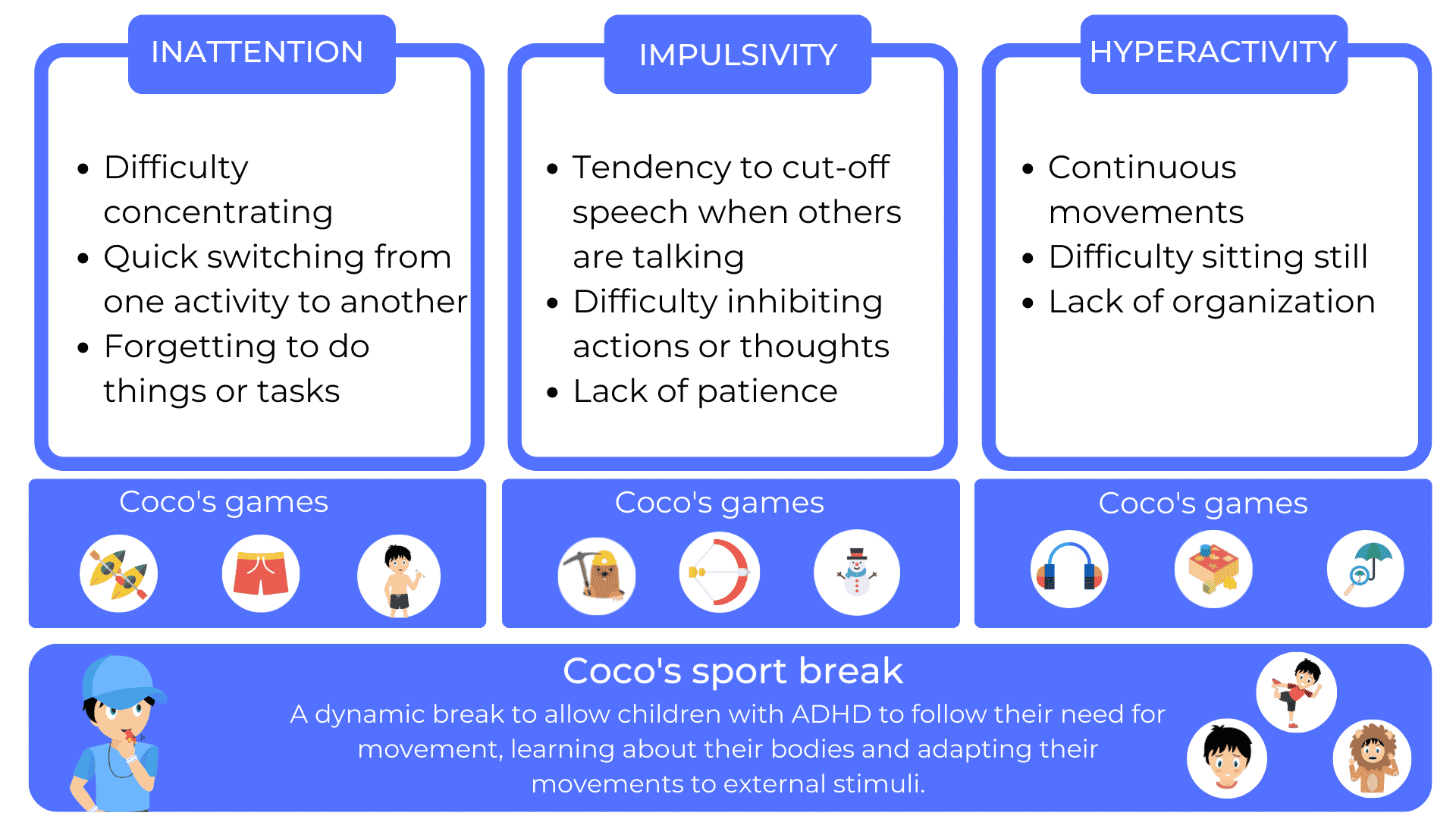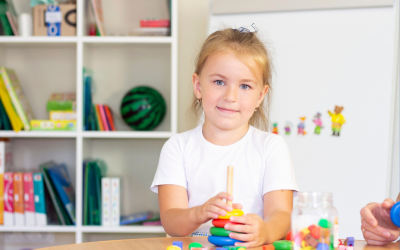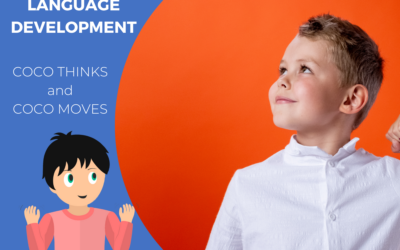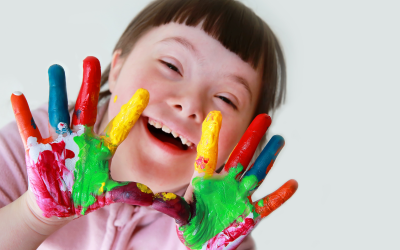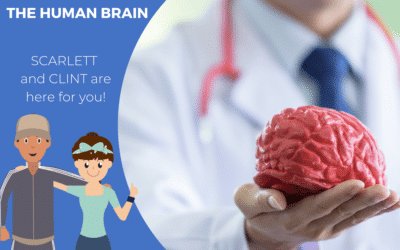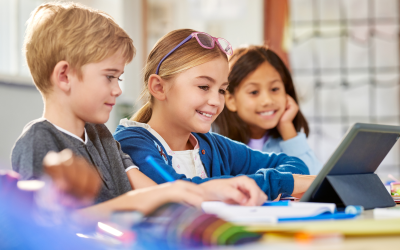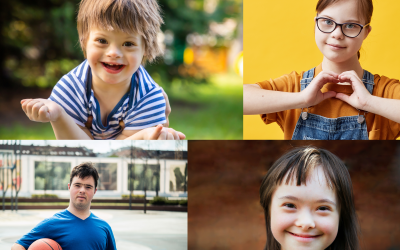Play therapy offers an innovative and effective approach to helping children with ADHD overcome their difficulties and promote their overall development. In this article, we will explore in detail the many benefits of this playful therapeutic approach and explain how it can be beneficial socially, emotionally and cognitively.
The social benefits of play for children with ADHD
Improved social skills
Play therapy provides a safe setting where ADHD children can develop and improve their social skills. Group play activities allow them to learn to share, collaborate, resolve conflicts and communicate effectively with their peers. By practicing these essential social skills through play, ADHD children can improve their relationships with others and develop a sense of belonging.
Strengthening interpersonal relationships
Group play sessions allow ADHD children to connect with their peers and develop positive interpersonal relationships. By playing together, they can build friendships, share experiences and feel accepted and understood. These positive social interactions contribute to their emotional well-being and foster a supportive environment for their development.
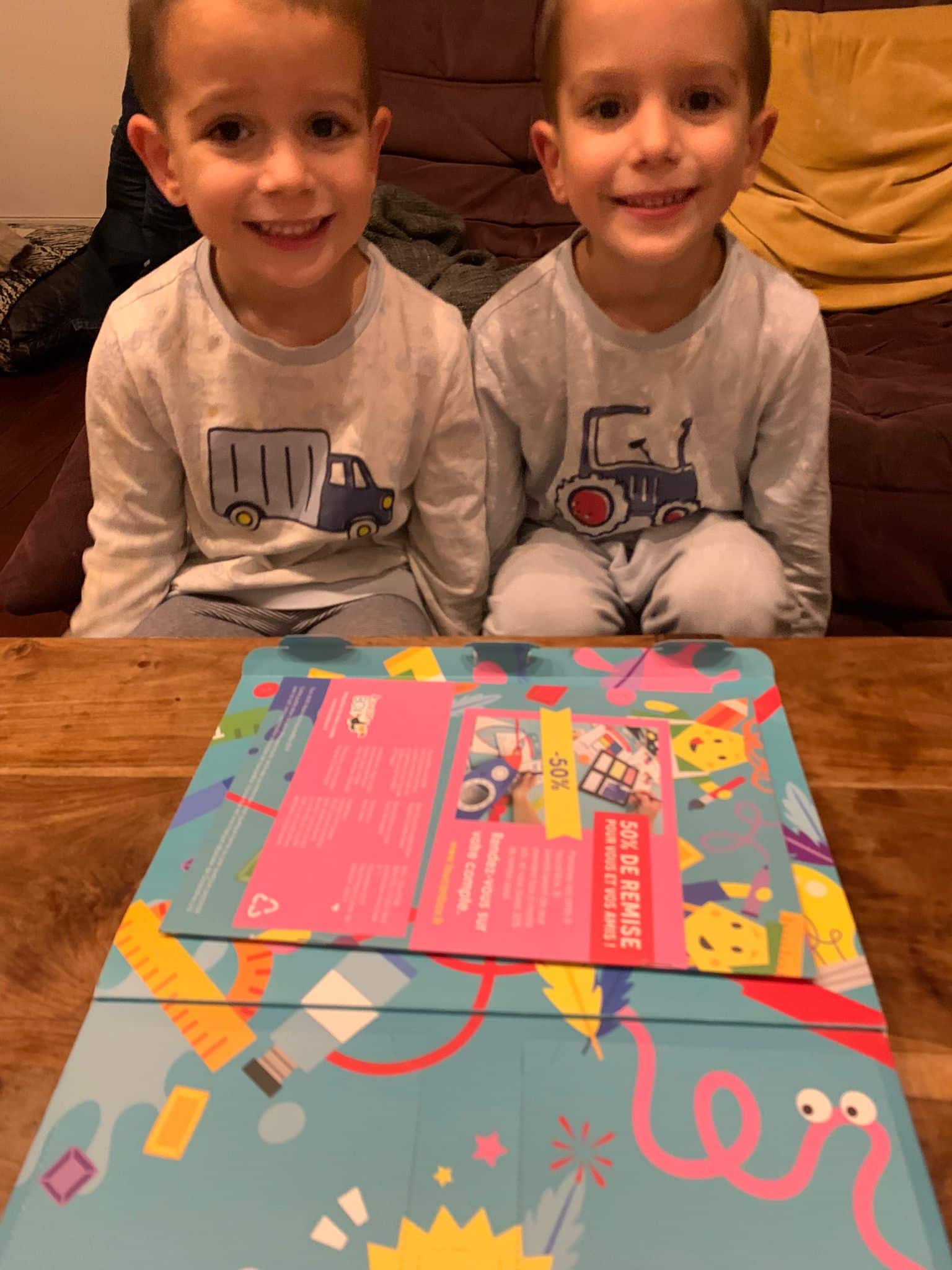
Acquisition of collaborative skills
Play therapy encourages collaboration in ADHD children. By participating in team play activities, they learn to work together, share responsibilities and achieve common goals. Collaboration in play also fosters the development of skills such as listening, respecting the opinions of others and finding collective solutions. These collaborative skills learned through play can be transferred to other areas of their lives, such as school and extracurricular activities.
The emotional benefits of play for children with ADHD
Expression and management of emotions
Play provides a safe space for ADHD children to express and manage their emotions. Through play, they can explore different emotions and learn to recognize and manage them appropriately. For example, through role-playing, children can simulate situations that allow them to express and understand their emotions and find strategies to regulate them.
Reduction of stress and anxiety
Play can be a form of relaxation and entertainment for ADHD children. By engaging in enjoyable play activities, they can reduce their stress levels and relieve anxiety. Therapeutic play can also provide specific strategies for managing stress and anxiety, such as breathing techniques and relaxation exercises. These tools can be useful in their daily lives to cope with stressful situations, especially at school when they are faced with assessments or intense social interactions.

The cognitive benefits of play for ADHD children
Improved attention and concentration
Play can be an effective tool for improving attention and focus in ADHD children. Challenging and engaging play activities require mental focus, which helps children develop the ability to concentrate on a given task. Through cognitive or mind games, ADHD children can strengthen their selective attention and ability to ignore distractions. In addition, some games may include elements of time structuring, helping ADHD children to better manage their time and improve their ability to focus on a task over a period of time.
Development of cognitive skills
Therapeutic play offers many opportunities to develop cognitive skills in ADHD children. Logic games, riddles, puzzles and memory games challenge their problem-solving, logical reasoning, planning and organizational skills. These playful activities stimulate their brains, promote the development of executive functions and strengthen their academic performance. In addition, by fostering creativity and imagination, play can help ADHD children develop skills in divergent thinking, critical thinking and creative problem solving.
Encourage creativity and imagination
Play encourages creativity and imagination in ADHD children. By engaging in role-playing, art activities, or construction games, they develop their ability to think creatively, generate original ideas, and explore new possibilities. Creativity fosters their mental flexibility and their ability to find creative solutions to the problems they face. In addition, creative play can be a source of fun and satisfaction for ADHD children, which helps to build their self-esteem and motivation.

In conclusion, play therapy offers many benefits to children with ADHD. By promoting social, emotional and cognitive development, it helps them overcome the challenges associated with this disorder. Through adapted play activities, ADHD children can strengthen their social skills, manage their emotions, improve their attention and concentration, develop their cognitive skills and cultivate their creativity. Play therapy is an effective and enjoyable therapeutic approach that can contribute to the development and well-being of ADHD children.
Supporting ADHD children with the COCO THINK and COCO MOVE application
COCO THINKS and COCO MOVES is a program of educational and physical games for elementary school, in order to implement universal learning.
Children with ADHD have difficulty staying focused. It is therefore important to use games that work on theactivation or inhibition of movement, as well as games that require a specific response time.
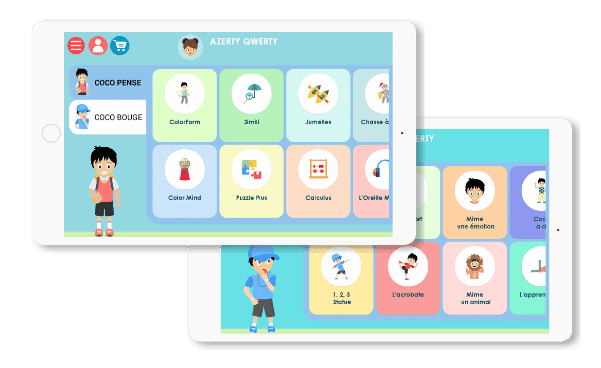
Adaptations of COCO THINKS and COCO MOVES for ADHD children
- Adapted physical exercises
- A personalized interface (possibility to hide games)
- Activities to teach body movement in space
- Activities for relaxation
- Activities that can be done sitting down
The mole invasion
In this game the child will see 3 different moles, and therefore 3 different stimuli. A normal mole he has to tap once, a mole with a helmet to tap twice and a mole with the glasses not to touch.
In this game we stimulate the activation and inhibition of the movement according to the stimulus. The child can learn to adapt to his environment, to take external information to choose which movement to make.
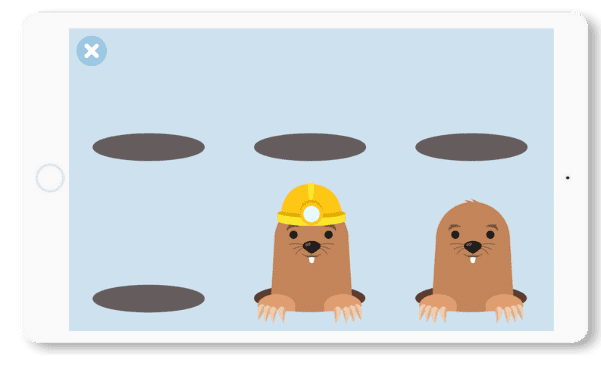
Balloon drill
In this game the child has to shoot arrows and reach the balloons according to the instructions.
In this game, there is no question of speed, but the child must watch the movement of the balloons and wait for the right moment to shoot. He must therefore stop his movement and wait for the best moment to shoot. The child must blow up only the balloons of one color, so it is very important to read the instructions carefully before starting to play.
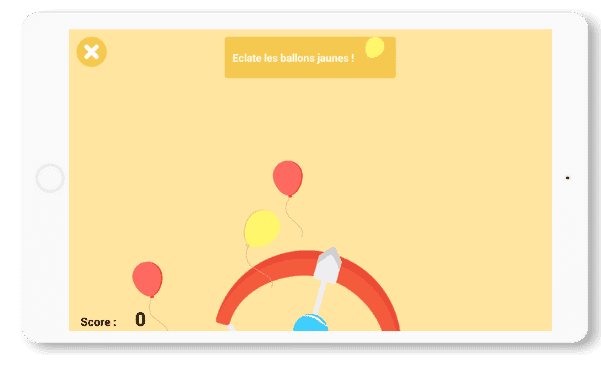
Snowball effect
In this game the child must press a single arrow to launch a snowball that must reach all the arrows on the screen. The child cannot quickly press the first arrow he sees, but must think carefully before acting. This game stimulates cause and effect, i.e. thinking about the consequences of an action.
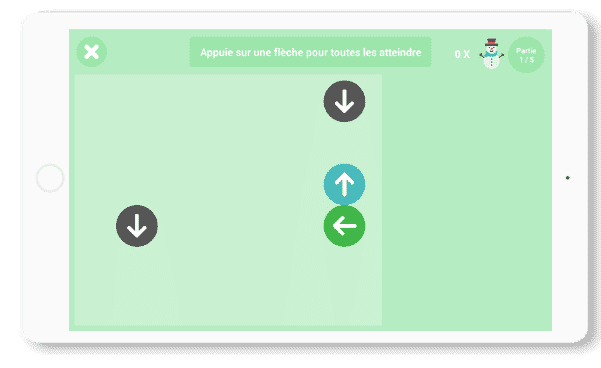
A follow-up of the evolution over time
In the application COCO THINKS and COCO MOVES there is a general score indicative of the performance, to know the level of competence. In addition, there are details on performance (time used to complete the activity, correct answers, movements needed and movements performed).
Children can see their strengths and areas for improvement:
if they need to improve their response time, strategy or skill, for example.
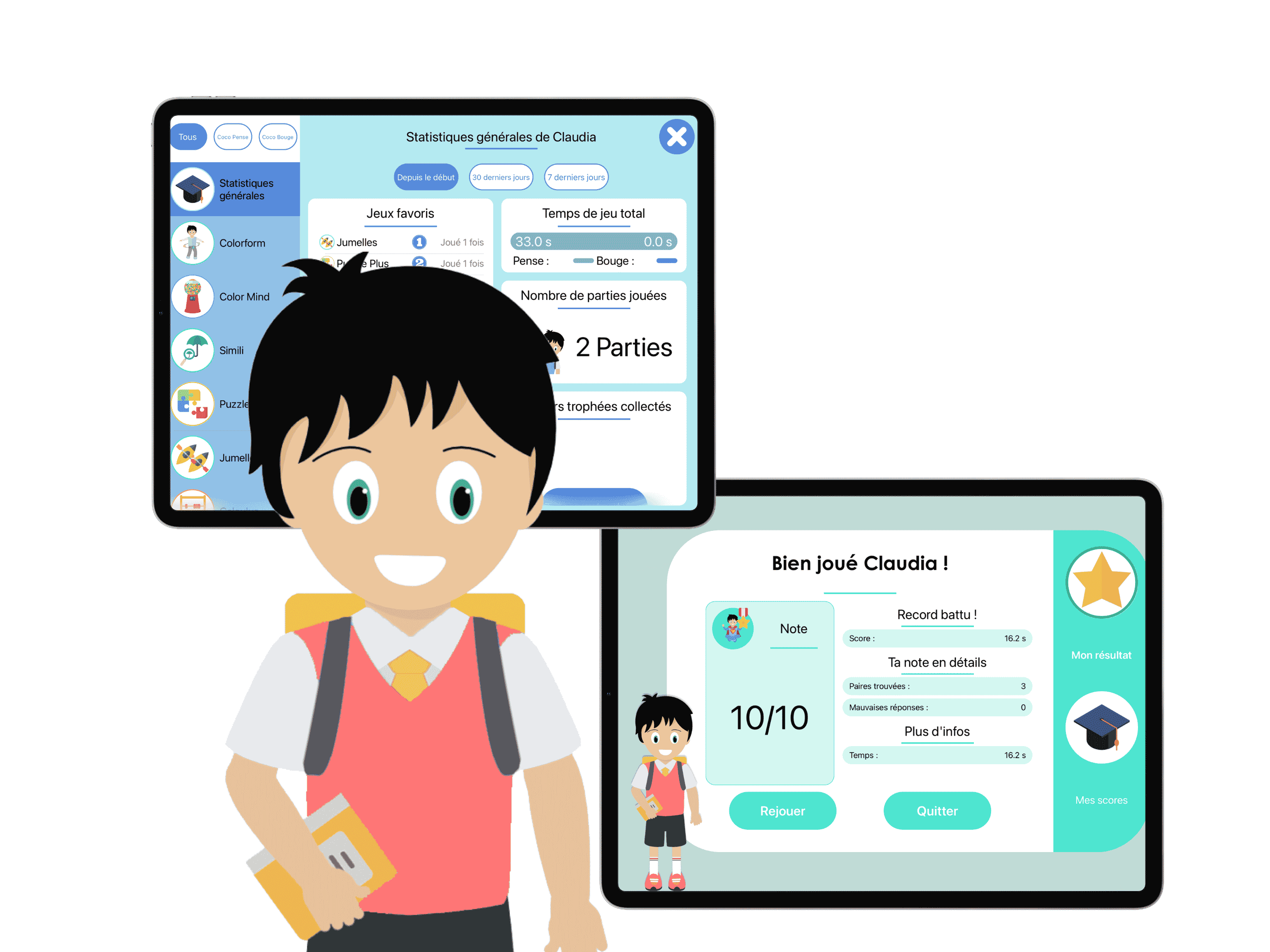
Other articles that might interest you:
Supporting children with autism
Dynseo proposesSUPPORTING CHILDREN WITH AUTISM with COCO THINKS AND COCO MOVESDynseo and its team are very much...
Supporting DYS children with COCO THINKS and COCO MOVES
Dynseo proposesDYS disorders with COCO THINKS and COCO MOVESOur educational and pedagogical games program COCO THINKS...
Language development
Children communicate from birth with movements, crying, looking at each other or with smiles. After only a few months,...
Supporting children with Down Syndrome with Coco
Dynseo proposesDOWN SYNDROME with COCODown syndrome is a non-hereditary chromosomal abnormality that leads to the...
Supporting people after a stroke
Dynseo proposesStroke with CLINT, your brain training coachThe Dynseo team is very involved in helping people who have...
Supporting someone with Alzheimer’s
In this guide, we will detail how SCARLETT can be used for supporting someone with Alzheimer's. SCARLETT is a...
10 myths about the human brain you didn’t know
The brain is an incredible muscle, however there are many things we do not know, and what we do know is not always...
Using Digital Tools to Support Students with Special Educational Needs
Special Educational Needs (SEN) encompass a wide range of learning difficulties and disabilities that can hinder a...
Down Syndrome and Communication: Facilitating Interaction with Visual and Interactive Supports
When we think about Down syndrome, we often recognize it as a genetic condition that affects physical and cognitive...
How to Track Progress in People with Down Syndrome Using Digital Tools
Down syndrome, a genetic condition caused by the presence of an extra chromosome 21, affects approximately 1 in every...


